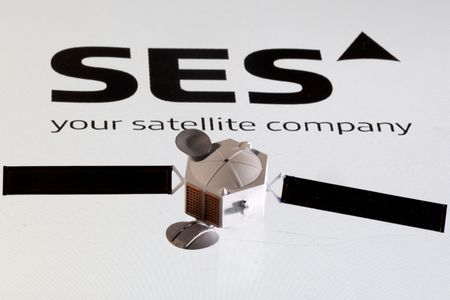By Ozan Ergenay
(Reuters) -German semiconductor materials supplier Siltronic on Wednesday cut its 2025 core profit margin forecast but confirmed full-year sales guidance, saying it is not yet possible to estimate the impact of U.S. tariffs.
The company, whose customers include Infineon, Intel, Samsung and TSMC, now expects a margin of 21% to 25% on earnings before interest, taxes, depreciation and amortization (EBITDA), having previously forecast a range of 22%-27%.
“Sales guidance for 2025 remains unchanged, although it is not yet possible to estimate the impact of U.S. tariff policies and the corresponding countermeasures on expected end-market growth and FX rates for the remainder of the year,” Siltronic said.
U.S. President Donald Trump’s sweeping tariffs and uncertainty over his trade policies have sent global markets into a tailspin and significantly dampened investors’ economic optimism.
Shares in Siltronic, which have fallen 18.2% since the start of the year including today’s session, were down 2.5% as of 0846 GMT, sitting at the bottom of Germany’s small-cap index.
“Visibility remains limited on when our customers’ inventories will recover and thus demand for wafers will increase. Added to this are uncertainties due to the tightening of U.S. tariff policies and the corresponding countermeasures,” CEO Michael Heckmeier said in a statement.
Heckmeier added that the impact on end-markets and foreign exchange rates is not yet foreseeable, but Siltronic does not currently expect any significant direct impact of tariff policies.
Analysts at Jefferies said in a note that demand for wafers continues to be subdued with inventories still at elevated levels at semi manufacturers, and the timing of normalization is still uncertain.
“However, 2025 will continue to be characterized by elevated inventory levels at customers and the associated volume tariffs,” the company said.
“We are in very regular and intense contact with customers,” Heckmeier said on a conference call with analysts, adding that inventory levels are very similar to the last quarter.
“There are not a lot of new dynamics coming into this,” Heckmeier added.
Siltronic has been suffering from its customers’ slower than expected inventory reductions, even as the demand for wafers was increasing in end markets.
Weak demand for automotive, PC and memory chips has been only partially offset by AI chip demand even before Trump’s back-and-forth announcements on tariffs.
($1 = 0.8790 euros)
(Reporting by Ozan Ergenay in Gdansk; Editing by Christian Schmollinger, Kim Coghill and Jan Harvey)








